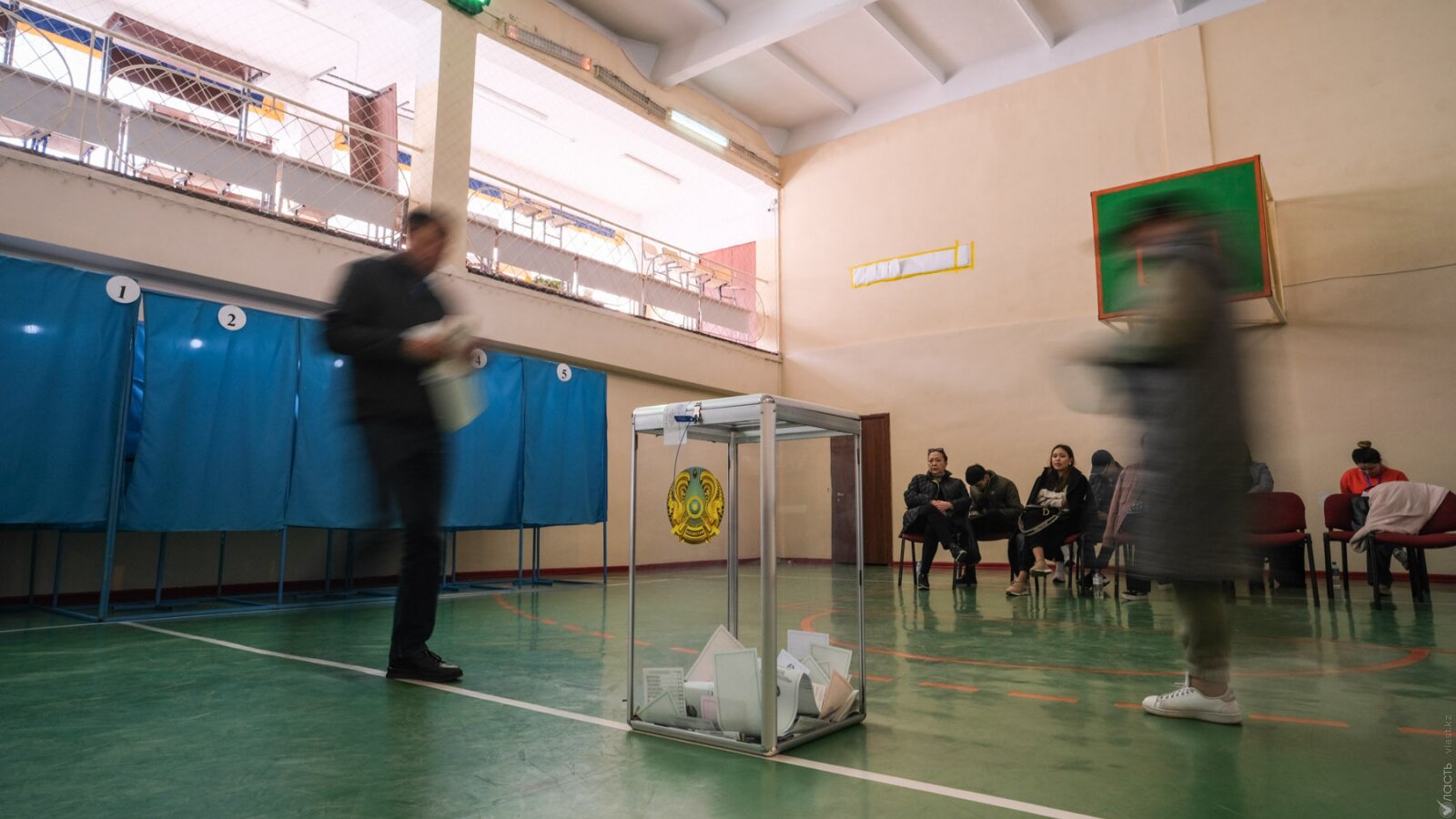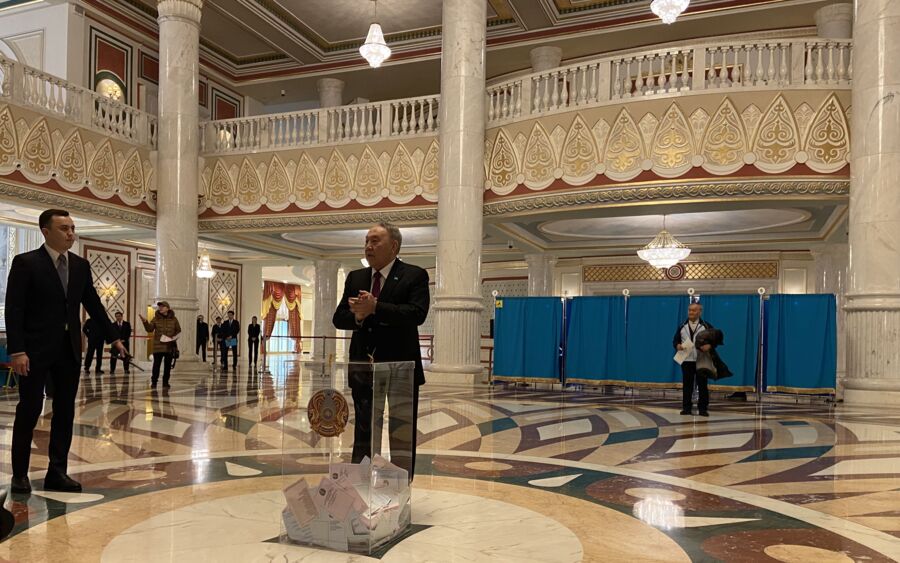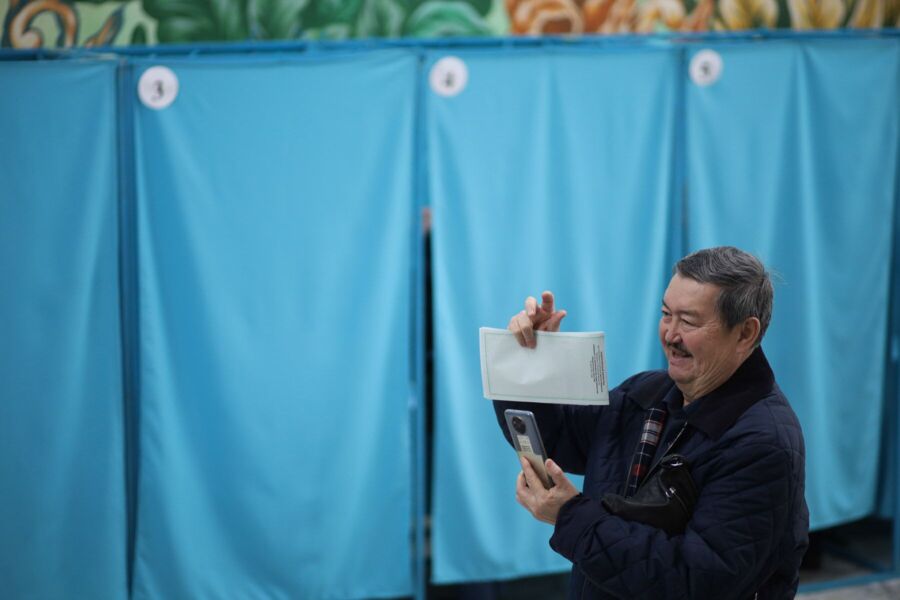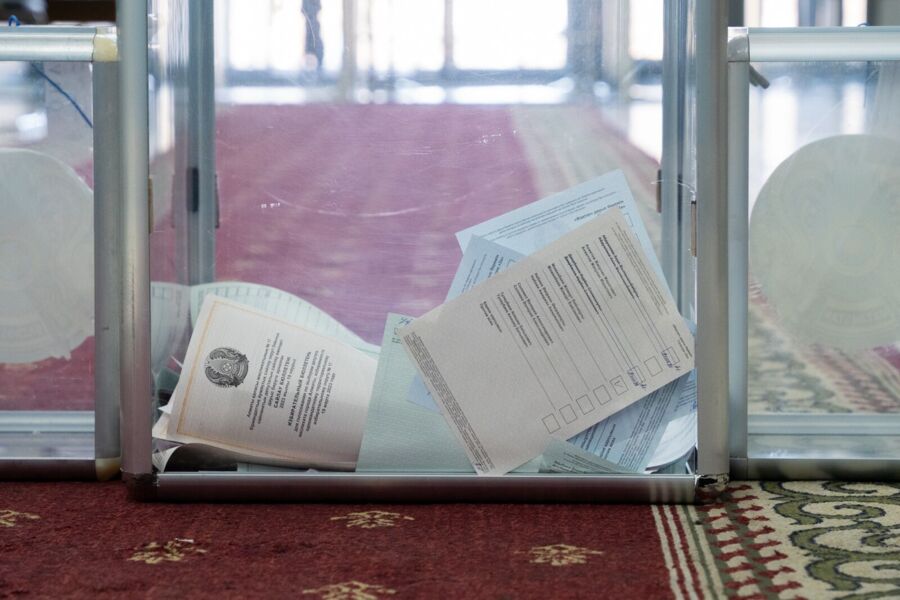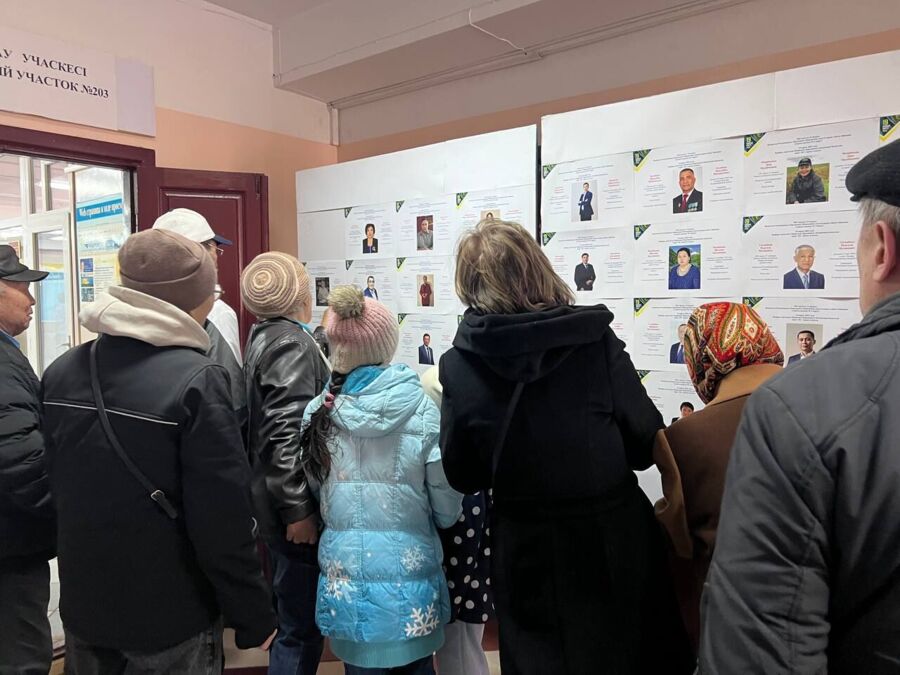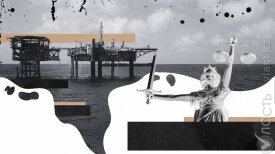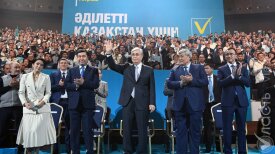A woman burned some stalks of wild rue into a pot and entered her polling station in the capital Astana, aiming to rid the elections of the “evil eye” through the incense produced by the plant. This unconventional method, however, could not ensure the fairness of the vote, as Kazakhstanis went to the polls to elect a new parliament and representatives of local assemblies on March 19.
Traditionally predictable, the results of the vote showed a landslide victory for the Amanat ruling party. For what concerns the party lists, Amanat garnered almost 3.5 million votes, or 53.9%. Government-friendly parties Auyl (10.9%), Respublica (8.6%), Ak Zhol (8.4%) the People’s Party (6.8%), OSDP (5.2%) were able to overcome the 5% threshold and will have seats in the Majilis, the lower house of the parliament.
Respublica, which registered just four months ago, and OSDP, formally an opposition party, will make their first appearance in the Majilis.
In the 29 single-mandate districts, despite the presence of a handful of independent candidates, all seats were captured by candidates loyal to the government and, in most cases, affiliated with parliamentary forces.
Commenting on the results, Luca Anceschi, professor of Central Asian studies at the University of Glasgow, said that authoritarian continuity cannot lead to any novelty.
“This idea of ‘New Kazakhstan’ is a label that makes no sense. If you look at the electoral results of the last nine months, the methods are taken straight from Nazarbayev’s textbook,” Anceschi noted, referring to former President Nursultan Nazarbayev, who ruled the country for three decades.
Observers Don’t See Transparency
While institutional observers applauded the democratic exercise, independent observers noted that both the campaign and the polling day were rife with violations.
In the aftermath of the vote, representatives of the OSCE, the most respected international elections observation mission, said in a press conference in Astana that the elections lacked transparency.
“Some political groups continue to be prevented from participating as political parties in elections. While the elections brought elements of competitiveness into the political arena, diverse administrative obstacles negatively affected the quality of campaign opportunities for some self-nominated candidates.” Irene Charalambides, co-ordinator and leader of the OSCE short-term election observation mission, said.
At the same press conference, Reinhold Lopatka, the head of the OSCE Parliamentary Assembly, said that a “seed of democracy has been sown” but there is still a long road to go.
“In the future, the publication of results from each polling station will be important to have an improvement of transparency and public confidence.”
Eoghan Murphy, of the OSCE/ODIHR long-term mission, which prepared a snap preliminary report, said the poor count of the votes clashed with the “smooth preparation” of the election by the authorities.
Around 54% of the 12 million eligible to vote cast their ballots, with higher percentages in the peripheral regions and, as customary, low turnout in big cities. In Almaty, Kazakhstan’s largest city, only 25% of the eligible voters went to the polls.
In an interview with Vlast, Riccardo Pelizzo, associate professor of political science at Nazarbayev University in Astana, said that such low voter turnout could be a sign that the increased political competition failed to attract residents.
“Official polls show that the number of voters who made up their mind in the past few months had increased. Yet, while there was an increase in the consensus for the ruling party, the other parties did not capitalize on this trend. My guess is that in the end allowing more parties failed to restore trust, especially among the undecided.”
Surveys Say Amanat Lost Ground. The Results Disagree
Amanat’s large consensus at the polls translates into an even bigger presence in the Majilis, thanks to a distortion of the system and because several of the ruling party’s candidates also ran in the single-mandate districts.
Upon preliminary accounts 23 out of the 29 candidates that won the single-mandate districts are affiliated with Amanat.
Amanat’s 53.9% of the votes, together with the 23 single-mandate winners, could result in 62 or 63 seats, depending on the final count, which would translate into 63% of the seats.
The picture painted by the vote, however, looks significantly different from the one described by independent surveys, says Tlegen Kuandykov, Communications Officer at Central Asia Barometer (CAB), a non-profit public opinion research center.
“According to our latest data, collected in November-December, about 20% of Kazakhstanis favored the ruling party, Amanat,” Kuandykov told Vlast.
The popularity of Amanat (until last year known as Nur-Otan), according to CAB’s polls, is declining steadily since they started collecting data.
“Amanat’s popularity fell from 74% in 2017 to 49% in 2019, and further to around 20% in the last few years,” Kuandykov said. “The rebranding of the Nur-Otan party to Amanat, has not improved the reputation of the ruling party in the eyes of the population.”
This contrasts with the growing popularity of President Kassym-Jomart Tokayev, whose approval rate jumped from 37% in November 2021, to 57% in November 2022 (update: this percentage only reflects respondents that said their general attitude towards the president was "very positive"). Yet, Kuandykov cautions, the data presents an enduring bias when it comes to the president.
“Questions about the president are considered very sensitive by respondents in authoritarian countries. Although we use some techniques to reduce bias, respondents still tend to hide their true preferences due to concerns about their anonymity and safety,” Kuandykov explained.
PaperLab, a public policy NGO based in Astana, published the results of their survey closer to Election Day, showing that only about 60% of their sample said they would go to vote and only 20.8% said they would vote for Amanat.
The latter figure is consistent with CAB’s November-December survey. According to PaperLab data, more than 60% of the respondents said they had yet to decide what party to vote for. The data also showed that none of the other six parties running had approval ratings above 3.3%.
“In the past two-three years, the electorate has become depoliticized and distanced itself from the practice of elections. In general, there is little trust in parties,” Serik Beyssembayev, a sociologist at PaperLab, said in an interview at the Giperborei YouTube channel.
The Usual Kind of Vote
Kazakhstan’s alleged “new course” was in the spotlight during this parliamentary campaign. This was in fact meant to be the last stage of an electoral cycle that started with the June 2022 constitutional referendum and continued with presidential and Senate elections.
Yet, observers saw many of the old practices and violations during the voting process.
At several polling stations observers shot videos of ballot box stuffing and multiple voting by the same person.
Several people were spotted taking pictures of their preferences on the ballots, saying their employer asked them to do so. Such kind of informal reporting is an undying practice that breaks electoral rules.
After casting his vote, the minister of higher education Sayasat Nurbek told journalists that the government had listened to the traditional criticism regarding universities forcing students to vote.
“We gave strict instructions to rectors, deans, and chairs. We established special emergency centers and created the position of ombudsman for the protection of student rights.”
The fact that the minister had to explicitly remind that “every student makes their own choice”, is still a sign that the practice is still widespread. And local media reported about several similar incidents.
Voters also lamented that the names of several candidates were printed and then struck off from the ballots.
The longer-than-usual sheets used for choosing candidates in the single-mandate districts featured the names of everyone who received the green light from the Central Elections Commission. Yet, after additional checks and court cases, several candidates lost their status.
Inevitably, the presence of their last names, redacted either in print or by hand, further confused voters, who had dozens of names to choose from in some instances.
The Central Elections Commission had struck off from the candidates’ list one individual for offering free taxi services during the campaign. On election day, observers noted that another candidate and his campaign staff allegedly drove voters to the polls and instructed them on how to cast their preference.
Confusion also stemmed from the short campaign period. The election, as per custom, was called early, three years before the current parliament’s mandate expired. The last time a parliamentary election was held, predictably, close to the end of the term was in 2004. Since then, snap elections have become an informal rule.
Contestation and Future Plans
Several candidates held post-election press conferences in protest of these violations on March 20. They demand the elections be annulled and held again in fairer terms.
In the coming days and weeks, the government is likely to boast that new parties have entered the stage, widening, at least formally, the political spectrum.
Pelizzo, the Nazarbayev University professor, wrote in an academic piece last year that Kazakhstan’s party system is becoming less varied and less accountable to the people.
“If voter demands are not adequately taken and kept into consideration, voter satisfaction with the functioning of the political system is bound to decrease along with the trust in government and the legitimacy of the political system itself.”
Because experts consider the new parties a political project by the presidential administration, it is important to note that more parties do not necessarily create more choice.
Anceschi, from Glasgow University, takes this point further.
“There is no difference between the parties that won seats at the Majilis. This new parliament is a product of a sham vote and will continue to be directed by the government” said Anceschi.
Timid participation also demonstrated that this so-called “democratic exercise” was illusory, according to Anceschi.
“Central Asia used to showcase large turnout numbers that were clearly not real. The fact that they could not show that more than 54% voted, even in presence of glaring violations and ballot stuffing, means that the people really did not believe in the alleged change.”
The widespread frustration among the independent candidates that lost left a bad taste also among those who believed in them. Actively campaigning and trying to breathe new life into Kazakhstan’s politics has not yet become consequential in Tokayev’s system. But as some of the candidates said ahead of the elections, this is just the start.
Поддержите журналистику, которой доверяют.
